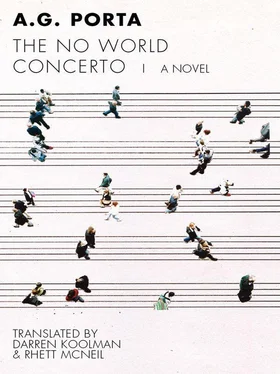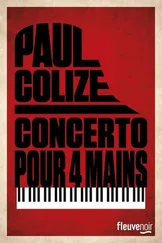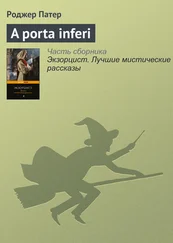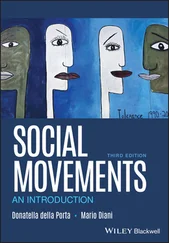Early the next morning, the screenwriter finds himself beginning again the old ritual of doing nothing except lying on his back, staring at the ceiling, and listening to the noises outside. He only vaguely recalls last night’s perambulation, the streets whose silence seemed to swallow the echoes of his cane, the candle beleaguered by vagrants, his tiredness, his finally falling into the bed and going asleep. Now, he wants to pick up the thread of the story. First, he wants to conjure, in his mind’s eye, an image of the girl, and where he thinks she’ll be that very moment, for in situating her, his feet find the ground on which he’ll have to slog until he reaches the end of his story. He sees her in the hotel, writing in her diary while looking at the balcony. The screenwriter wonders if she has breakfast with her father. They’re rarely in the same room together, but they must surely eat together on occasion, he thinks. He wonders what these two people, who can barely say more than a few words to one another other, would talk about if they had to sit together in the hotel café, or wherever else they might choose to go and eat, and endure each other’s company for longer than it takes to exhaust the available small talk about school or the weather. He stands with the help of his cane and takes a look out the window, as if he’s been entrusted with a mission to monitor his neighbor’s movements in the building opposite. She seems to be deliberately avoiding him. He then looks at the lingerie store, at the people walking past it, to see who goes in, then at the stores that are closed for the August vacation, and at the people waiting at the bus stop. He concludes the world’s still in its orbit. While shaving, he thinks of the girl’s father sitting on a café terrace in front of the Grand Central Station. The girl, sitting at his side, asks him about the terrorist who’s just been captured, and about whom all the newspapers are reporting. Her father would rather talk about the star of her favorite soccer team, a player who doesn’t seem to want to rejoin his teammates; or perhaps he’d like to ask her why she’s stopped practicing piano. But the girl is insistent, and she finally risks broaching the subject of Cousin Dedalus, a man who disappeared in the neighboring country’s capital years ago, and for whom the police are still looking. What will the press say when they capture him? she asks. Her father looks over his newspaper at her. That has nothing to do with the terrorist, he says, as he folds the newspaper and puts it to one side. He then takes a sip of his coffee and fixes his eyes on his daughter. The screenwriter cleans his razor under the running tap and leaves it dripping to air-dry next to the soap. He then dries his face with a towel and examines the results in the mirror. His face refuses to accord with the image he has of himself. Not that he despises the reflection staring back at him, but it’s not the face of the man he imagines himself to be. Alas, he’s gotten used to it at this stage of his life. Suddenly he remembers the producer: a man who seems to be avoiding him. But he’s running seriously short of funds, he thinks, so he decides once again to try calling him. Which he does, and yet again, there’s no answer. He must be on vacation, he thinks. There’s no other explanation. Either way, he’ll have to prepare some material to send him. He can’t ask for an advance without sending something. Where was I? the screenwriter wonders, sitting at the typewriter and scavenging through his papers. He left off at the station, where the girl and Cousin Dedalus/McGregor — he still doesn’t know which name to keep — are sitting in the same café. The girl had been starting to feel the same as her father and cousin do during their long vigils. No it wasn’t that, he thinks, recalling a more recent interaction. Before he called the producer, he happened on an interesting idea. He lights a cigarette. He knows he shouldn’t be smoking before breakfast, but he’s a little anxious, and the tobacco helps to calm him. He remembers exactly what it was, although he hasn’t written it down yet. He notes it down quickly before it recedes into his unconscious. The girl’s sitting on the terrace of a café in front of the Grand Central Station, having breakfast with her father. She’d like to know what the press will say when the police catch Cousin Dedalus. Her father says that has nothing to do with the terrorist, and takes a sip of coffee. Meanwhile, she’s looking past him, perhaps at the steps outside the station, and she hears him say he doesn’t want her interfering either with him or his associate while they’re working. The girl looks at her father again, intending to demur, but the face she meets warns her against any rejoinder, against any demand for further explanation. He cautions her not to interfere in any of his affairs. He simply won’t tolerate it. She nods reluctantly, again looking away, this time at the foyer she can see just inside the station. Affairs. . she thinks, repeating her father’s euphemism as she looks at the station’s frontage. Don’t even try interfering, he said. She tries to think what affairs he might mean: the vigils, the astrophysicist’s illness, making contact with aliens? Are these the things he won’t tolerate her interfering in?
He’s left his clothes at the laundry. Now, he finds himself slogging uphill, leaning precariously on his cane, but once he reaches the end of the road, he can see the finish line, as it were, the seats and tables of the café in the plaza. The screenwriter limps slowly. There are days when he has to drag his leg like a dead weight, he thinks. It depends on the mood he’s in when he wakes up. On crossing the finish line, he flumps into the nearest seat and looks out for the waitress, hoping she doesn’t take too long. He puts both hands on the pommel of his cane and rests his chin there. But he immediately alters his posture, since he thinks that position makes him look older. He’s seen people do it who look as if they’ve got one foot in the grave. Perhaps he does it because he’s tired, he thinks. Watching the waitress serving a table not too far away seems to reinvigorate him. He then looks over at the plaza. He wishes he knew the names of the people he regularly crosses paths with, simple people with simple habits, he imagines: the girl who walks her dog, the pensioner on his way to buy groceries, the gardener. . The waitress approaches. One day, we’ll have to go on a date, he says. The girl’s expression doesn’t change; she doesn’t even betray a slight grin. The usual? she asks, after an awkward silence. I’m bewitched by you, he continues, ignoring her question. Is it because I’m older than you? You know, maturity is indicative of experience. . he says, beginning an apologia on the virtues of senescence. She quickly loses patience. The usual then, she says, turning around and leaving him mid-sentence. You’ve no idea what you’re missing, he mutters, unfolding the newspaper. One of the detained terrorist’s ex-girlfriends says the police have been harassing her for twenty years, and that the relationship ruined her life. The soccer player still hasn’t returned. Sure you won’t change your mind? he asks the waitress when she brings his coffee. After she stonewalls him a second time, he goes fumbling for his cigarettes in his jacket pocket, whereupon his fingers touch the envelope the girl sent him. He recalls that he hasn’t read all she’d written. The Principal of the Institute in which he once taught had also tried to prevent a scandal, and the screenwriter wonders whether what he’s reading is hitting too close to home. He lights a cigarette and removes the pages from the envelope. “4.3 The possibility of uncertainty does not mean that finally such a possibility exists or does not exist. Classes are over, and the director of the Academy is deliberating. He would like to avoid a scandal, but the old professor of philosophy simply can’t continue teaching there. Do you know the female student’s parents? the professor asks the director. He says he doesn’t. Perhaps he doesn’t care to after what’s happened. The old professor asks if he can gather his things and leave. Deep down he knows that sooner or later her parents will find out. If some persona incognita managed to find out, then surely it’s only a matter of time. 4.4 An accusation is an expression of agreement. 4.41 The mere possibility of being accused is the condition of the truth and falsity of the accusation. The old professor leaves the Academy, incensed at his wife. It had to be she who betrayed him. He can’t stand the thought of continuing to live under the same roof as that woman. For an instant, his alien hunter’s instinct leads him to suspect both his wife and the director of the Academy come from another world. But he needs to find a photo of each to verify whether or not they have a special halo. 4.5 It now seems possible to give the most general propositional form. We can start all over, he says to the female student that night. We can begin a new life. Let’s get out of here, run away together. What kind of new life do you propose? she asks. He can’t answer. It’s an idea he only just came up with — still inchoate, indefinite, something nebulous floating around his head — but he quickly improvises an answer, as one who divines the shape of a cloud in the sky, and suggests their life would be such that she could write while he gave classes at other academies. Write, murmurs the female student, sounding a little disenchanted. The old professor is talking about starting a new life in a city far away, perhaps somewhere in outer space. He’d even run away to the No World, if necessary, where they could lie together under an artificial palm tree, and make love on white sand imported from the tropics. He says they could read W and all the great classics together, and she’d get the opportunity to revolutionize the world of letters. All she needs is the daring, the audacity, to take the first step. The female student smiles. Maybe she will leave her mark on the world of letters; maybe future generations will judge her contribution in terms of what came before and what came after her, but it won’t be with him. I can’t leave now, she says apologetically. I’ve got commitments. He begs her to break away from them; to break away from everything, starting with her past. We can become new beings, he urges her, with an exuberance bordering on the pathetic. Free! The girl can’t make such a decision in haste. She wants to write, she says, but she doesn’t know if she’ll be able to do so with him around. She also has musical commitments she can’t simply forsake. She has several concerts to perform in one of those cities in space orbiting the Earth. She also wants to make an unforgettable recording of the 5 Pieces for piano . . Run away with me, he urges her again. But the female student knows it’s not a matter of running anywhere with him, for he’ll be going nowhere himself unless she goes with him. Just try to imagine we’re there, she says consolingly. After all, this life, or any life you care to have, will only ever exist in your mind. There’s nothing outside it. Besides, even if we did run away together, it wouldn’t be long before he found us. Before who found us? he says, taken aback. My father.”
Читать дальше












